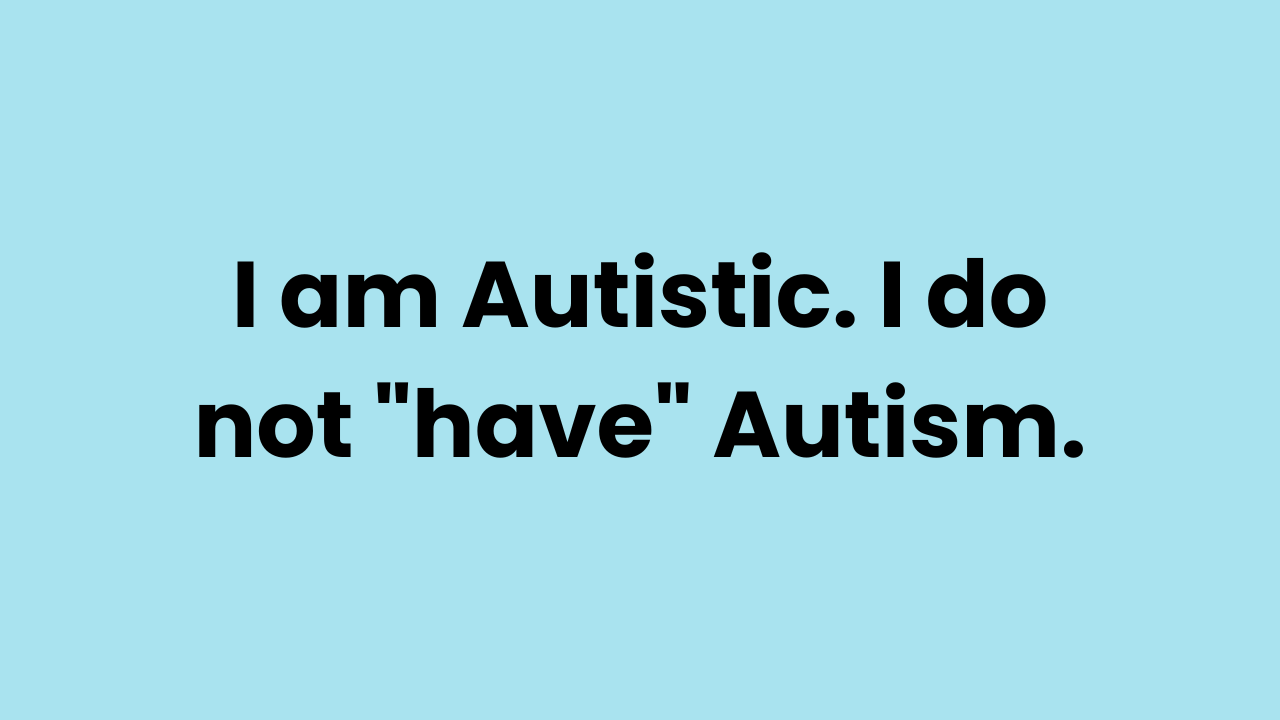I am Autistic. I do not "have" Autism.
Jan 04, 2021
Since posting my YouTube video "How I found out I have Autism" less than a year ago, I have learned A LOT about Autism. I want to thank the Autistic Community from the bottom of my heart, for welcoming me into the neurodivergent space and educating me about the entire spectrum; both literally and figuratively. From traits to semantics and beyond, I have been positively overrun with knowledge and am still learning each and every day!
I also want to thank everyone already in my community or not on the Autism spectrum, for being open to me sharing this part of my life, for being willing to learn, and for supporting me as I constantly learn more about myself. That said, I aim to spread knowledge and educate the world about neurodivergence from my lens of being Livia, and I'd love it if you'll follow along ❤️
Semantics
One of the most prominent lessons I have learned since starting my Autism journey, is the role of semantics when speaking about people on the Autism spectrum. I used to think "person with autism" could be used interchangeably with "autistic person", but that is not the case.
I was diagnosed with an eating disorder before I knew about my autism, and learned through my ED recovery journey that anorexia & orthorexia were not part of who I was. I had an eating disorder. I was not "a disordered eater". Who we say we are is who we become, so I became very aware of the way I saw myself in relation to the eating disorder. If I said I was disordered, that meant the eating disorder was part of my identity. However, if I rephrased it to "I have an eating disorder", there came an opportunity to let go of the illness and hold onto hope that I wouldn't have to carry it on my shoulders forever.
When I was discovered I had autism, I adopted the same terminology as I had with my eating disorder. Hence, naming my "autism coming out video" as "How I found out I have Autism".
"Autistic Person" vs. "Person with Autism"
It wasn't until an Autistic individual kindly pointed out to me that people on the Autism Spectrum prefer to use identity-first language over person-first language. I did not know what this meant, but I'm so glad I was made aware of it! Because now I can educate others about it and fully embrace my uniquely autistic self.
Identity-First Language
...puts a person's condition or state before the person. In the Autism community, most people prefer to use identity-first language, using terms such as “Autistic,” “Autistic person,” or “Autistic individual”. This is because we understand autism as an inherent part of an individual’s identity. Similar to how most individuals in the LGBTQ community prefer to be called "gay" or "queer" instead of "person with gayness" or "person with queerness". Same with racial/cultural background or religion: most people will say "I am African-American" or "I am Jewish" as opposed to "a person with African-American-ness" or "a person with Jewish-ness".
Person-First Language
...puts a person before their condition or state. In the case of Autism, "person with Autism" would be used. The problem with person-first language and why most Autistic advocates prefer to use identity-first language, is because person-first language implies that Autism is something we carry, and is not part of our innate being.
Even worse, the term "person who suffers from Autism" may be used. This happens especially in Autism "treatment" which, in my opinion, is downright harmful. We do not "suffer" from a condition that makes us different and unique...but because it IS different and unique and society likes to shame that, it is seen to other people as "suffering".
Should I use "Autistic" or "person with Autism"?
As someone who is super detail-oriented, believes strongly in righteousness, and is hyper-attentive to semantics and nuance, I prefer to use identity-first language. Autism is part of who I am. It's not something that I can lift off my shoulders and put aside for a moment, and it's not an illness (like an eating disorder) that I have to fight to get rid of. Everything about me is autistic. Every move I make, every choice I face, every social interaction I have; it's all me, being autistic.
Being autistic is a gift that gives me the traits that make me the unique human I am. Being autistic has allowed me to understand and connect with people on a deeper level. Being autistic provides me with an intense inner wisdom that I never knew I had.
BUT I can only speak for myself. There ARE individuals on the Autistic spectrum that use and prefer person-first language. So if you're not sure whether to address a person on the spectrum with identity-first or person-first language, just ask them. We'd love to educate :)




